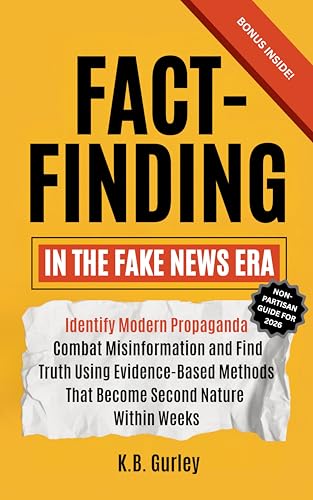Germany's BND warns you about an impending wave of Russian disinformation ahead of the 2025 elections. They've identified significant increases in fake news efforts aimed at manipulating public opinion. Tactics, like deepfake technology and fake news sites, aim to create distrust among voters, particularly targeting political groups such as the Alternative for Germany (AfD). As elections approach, staying informed is crucial for protecting democracy. There's more to uncover about these tactics and their implications.
Key Takeaways
- The BND has reported a significant increase in Russian disinformation campaigns targeting Germany's electoral process ahead of the 2025 elections.
- Fake news sites and AI-generated content are being utilized to manipulate public opinion and create confusion among voters.
- The disinformation efforts aim to boost support for the Alternative for Germany (AfD) party, undermining the integrity of the electoral process.
- Over 100 fake news sites have been identified, with the government ramping up security measures on social media platforms to combat misinformation.
- Public awareness and critical evaluation of information sources are essential for protecting democratic processes from disinformation threats.

As Germany approaches its upcoming elections, the Federal Intelligence Service (BND) is sounding the alarm about a surge in Russian disinformation campaigns aimed at manipulating public opinion. These campaigns are more than just a nuisance; they pose a serious threat to the integrity of the electoral process. By utilizing fake news sites, AI-generated content, and deepfake technology, they create confusion and foster distrust among voters.
You mightn't realize it, but the manipulation of public sentiment could sway election outcomes in ways that undermine democratic processes. The entities behind these operations, such as the Internet Research Agency (IRA) and Russia's military intelligence agency, the GRU, are well-known for their tactics. They've been linked to numerous disinformation efforts that target not just Germany but also other countries.
With the stakes high, it's crucial for you to stay informed about these threats, especially as the BND has observed a significant uptick in Russian espionage and sabotage activities. The government has recognized the urgency of the situation and is ramping up security measures, particularly on social media platforms where misinformation can spread like wildfire.
You should be aware that over 100 fake news sites have been identified under the "Storm-1516" operation, designed specifically to disseminate false narratives in Germany. These operations often leverage AI and deepfake technology to craft seemingly legitimate content that can easily mislead the public.
Social media plays a pivotal role in these campaigns, allowing pro-Russian influencers to amplify false information and target specific political groups, making it all the more important for you to scrutinize the sources of the information you consume.
As the elections approach, the potential for election interference looms large. Russian disinformation campaigns are particularly focused on creating distrust in the electoral process, with fake videos and false claims of ballot manipulation aimed at undermining voter confidence. They seem intent on boosting support for the Alternative for Germany (AfD) party, which has garnered significant attention in recent years.
Alarmingly, similar tactics have proven effective in other countries, highlighting the international ramifications of such interference. In light of these developments, it's vital for you to remain vigilant. The Interior Ministry has issued warnings regarding ongoing campaigns, and the government is taking steps to bolster security.
Awareness is your first line of defense against disinformation. Stay informed, question the narratives you encounter, and remember that the integrity of your vote depends on it.

Practical AI for Beginners: Unlock the Power of Artificial Intelligence with Simple Tools to Boost Productivity, Save Time, and Make Smarter Decisions in Everyday Life
As an affiliate, we earn on qualifying purchases.
As an affiliate, we earn on qualifying purchases.
Frequently Asked Questions
What Specific Methods Does BND Use to Identify Disinformation?
To identify disinformation, you'd use various methods like algorithmic analysis to spot patterns and social media monitoring to track suspicious content.
Network analysis helps you uncover sources, while content evaluation assesses credibility.
You might look for unusual behavioral patterns in accounts, like rapid posting.
Collaborating with fact-checking networks and employing AI-powered tools can also enhance your ability to combat disinformation effectively and keep your information environment more secure.
How Can Citizens Protect Themselves From Disinformation Campaigns?
To protect yourself from disinformation campaigns, start by questioning your sources and verifying facts before sharing.
Pay attention to content that triggers strong emotions, as it can cloud your judgment.
Engage in discussions about suspicious information with others to gain different perspectives.
Consider supporting local journalism and participating in media literacy initiatives.
What Role Do Social Media Platforms Play in Disinformation Spread?
Social media platforms act like a double-edged sword, cutting both ways in the realm of information.
They amplify voices, but often, those voices spread disinformation. With algorithms favoring engagement over accuracy, you might find misleading content populating your feed.
It's crucial to recognize that your sharing habits can perpetuate this cycle. By questioning the validity of what you see, you can become a guardian against misinformation, steering the collective narrative toward truth.
Are There Historical Examples of Successful Disinformation Campaigns in Germany?
You can find several historical examples of successful disinformation campaigns in Germany.
During the Cold War, Soviet efforts aimed at creating distrust in the West, often highlighting themes like a Nazi resurgence.
A notable case in 2016 involved a fabricated story about a Russian-German girl that sparked protests.
Additionally, in the 2017 elections, Russian media targeted political extremes, significantly influencing public sentiment and contributing to political polarization across the country.
How Does the BND Collaborate With Other Countries on Disinformation Issues?
The BND collaborates with other countries on disinformation issues through intelligence exchanges and joint research initiatives.
You'll find them participating in multilateral agreements to enhance global strategies against disinformation.
They conduct joint operations to monitor campaigns and share cybersecurity tools to counter threats.
Capacity-building programs strengthen partner nations' defenses, while policy coordination ensures a unified approach.

Ultimate Deepfake Detection Using Python: Master Deep Learning Techniques like CNNs, GANs, and Transformers to Detect Deepfakes in Images, Audio, and Videos Using Python (English Edition)
As an affiliate, we earn on qualifying purchases.
As an affiliate, we earn on qualifying purchases.
Conclusion
As the 2025 elections approach, the threat of Russian disinformation looms large. You can't underestimate the danger it poses to democracy and dialogue. Staying sharp and skeptical is key to navigating this deluge of deceit. By fostering fact-checking and fortifying your understanding, you can help safeguard society from this sinister storm. Remember, vigilance is vital; together, we can thwart the tide of treachery and ensure the truth triumphs over turmoil in the political landscape.

Fact Finding in the Fake News Era: Identify Modern Propaganda, Combat Misinformation, and Find Truth Using Evidence-Based Methods That Become Second Nature Within Weeks
As an affiliate, we earn on qualifying purchases.
As an affiliate, we earn on qualifying purchases.

SOCIAL MEDIA ISN'T REALITY Design, Cool Social Media T-Shirt
- Design Theme: Social Media Isn't Reality
- Message: Promotes Authenticity Over Fake Perfection
- Fit & Material: Lightweight, Classic Fit, Durable Stitching
As an affiliate, we earn on qualifying purchases.
As an affiliate, we earn on qualifying purchases.









